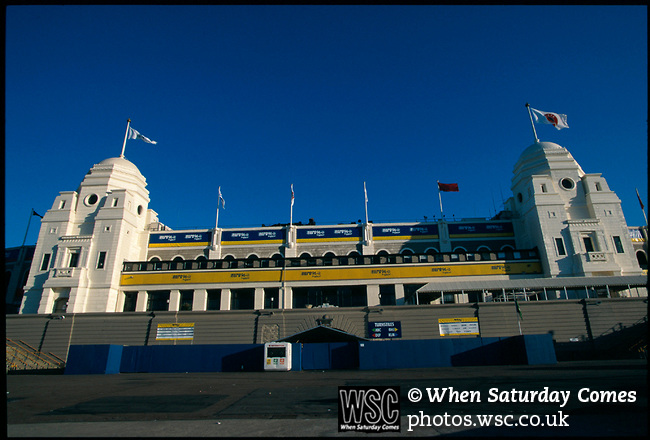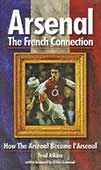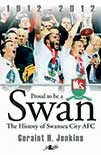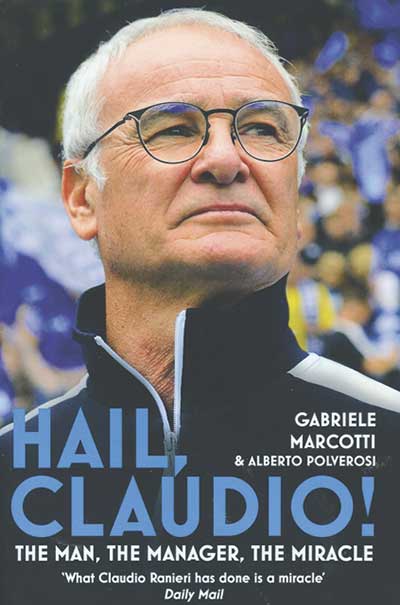
Search: 'Fort William'
Stories
 How the Arsenal became l’Arsenal
How the Arsenal became l’Arsenal
by Fred Atkins
GCR Books, £18.99
Reviewed by Damian Hall
From WSC 313 March 2013
There can’t be many football clubs that have a stronger connection to a foreign country than Arsenal do with France. Since Arsène Wenger took over, 23 French footballers have played for the Gunners – often in teams without an Englishman. Between September 10, 1996 and November 1, 2011 the club played only two competitive fixtures without a Frenchman in the team, both of which were experimental line-ups for relatively meaningless fixtures (and one included an unused French sub).
There’s a story to be told here and Fred Atkins is in a good position to tell it, having lived in France and studied at university in Strasbourg, the city where Wenger grew up and gained his oft-mentioned economics degree.
The book is logically divided into a chapter for each player and lengths wisely vary – you wouldn’t expect Patrick Vieira to get the same amount of coverage as Gilles Sunu. There’s a foreword by Gilles Grimandi, in which he self-deprecatingly confesses his one Arsenal goal was a mishit cross, but unfortunately there are no fresh interviews. Though tracking down all 23 men would have been a huge job, it means there’s little new here about the players’ times at Arsenal, bar occasional quotes translated from interviews with the French press.
The book’s interest comes largely from the players’ pre-Arsenal careers, such as the comical litany of bureaucratic errors by French football officials, one of which meant William Gallas couldn’t play first-team football for half a season at Marseille. No wonder his tantrums started long before his move to Arsenal. Many chapters are reminders that players’ foibles – Abou Diaby’s injuries, Mathieu Flamini’s perceived disloyalty – were there before they moved across the Channel. Some may enjoy the news that, while playing for Lorient against Bordeaux, Laurent Koscielny was once sent off for fouling future team-mate Marouane Chamakh and the obvious quips it encourages.
The Emmanuel Petit chapter stands out. His life has not been that of the average footballer: he’s struggled to deal with the death of his brother, depression, the USA 94 qualification failure (he played left-back in the defeat to Bulgaria) and periods of debauchery. Atkins also claims Petit drank and smoked throughout France 98. Perhaps more startlingly, after joining Barcelona, manager Lorenzo Serra Ferrer asked him what position he played. Petit almost joined Manchester United instead of Chelsea – and wishes he had.
However, Atkins’s tone is unashamedly parochial. There are puerile digs at Alex Ferguson, a tedious and paranoid rant about refereeing decisions and, apparently, Jacques Santini’s judgment should be questioned simply because he managed Tottenham, while crass speculation on Thierry Henry’s marriage breakdown belongs to the worst of the tabloid press.
Some bigger questions, too, go begging. Has Wenger systematically favoured French players over English players? If so, why? Should Le Prof still be recruiting heavily from Ligue 1 when the French national team are no longer pre-eminent – and when Alan Pardew seems better at it. And how has Wenger’s English seemingly got worse, “a little bit”, over the years?
 The history of Swansea City AFC
The history of Swansea City AFC
by Geraint H Jenkins
Yr Lolfa, £14.95
Reviewed by Huw Richards
From WSC 309 November 2012
Whatever else can be said about Swansea City, it cannot be denied that we attract a decent class of club historian. The centenary biography is by Geraint Jenkins, a Professor of Welsh History. It follows in the 30-year-old footprints of the club’s previous chronicler David Farmer, a Professor of Management Studies. Proud to be a Swan has the virtues of that academic provenance. It is well and widely researched – to the point of penance, judging by some of the titles in the bibliography – factually reliable and judicious rather than hyperbolic.
Jenkins ranges more widely than Farmer, whose dogged season-by-season account rarely looked beyond the preoccupations and content of the back page of the South Wales Evening Post. The club’s history is related to the context formed by the progress of its host community and the fortunes of its economy and society. Swansea’s copper and tinplate industries and the 1941 blitz take their place alongside the Vetch Field, Robbie James and the FA Cup semi-finals of 1926 and 1964. If you are one of many fans the Swans have gained in recent years, or a supporter of another club wanting to know more about an opponent which has compelled attention, this is a decent introduction.
Jenkins obeys the injunction to leave readers wanting more but not entirely in a way that they might want. He is largely cliche-averse but may have found himself muttering the one about quarts and pint pots. Given 30 more years and a wider frame of reference than Farmer, he is forced to tell the story in little more than three-quarters of the length.
One hundred and eighty-six pages is not remotely enough to do real justice to the first 100 years of any club, never mind one whose fortunes encompass the extremes of two periods of extraordinary upward mobility, a post-war era that included an exceptionally fertile generation of talent and at least three near-death experiences.
Jenkins is too scrupulous a historian to deny that the bad years have far outweighed the good. He ensures that they and their personalities receive proper weight alongside the peaks attained in recent years as well as under John Toshack and the achievements of giants like Ivor Allchurch and Cliff Jones. Perhaps the best passage in the book describes Herbie Williams – “The unlikeliest of soccer idols. Tall, gangling and unprepossessing” – a gifted player who was preternaturally unlucky in the timing of his career.
Those constraints of space force Jenkins to maintain a brisk tempo which leaves only limited scope for reflection or the wealth of anecdote generated by a club which abounds in idiosyncrasy. The result is an account which describes rather than evokes and seems slightly monochrome given the rich colour at its disposal.
He is perhaps unlucky that another centenary project – the online club archive at Swansea University – was under construction rather than fully available while he was writing. That promises to be a rich resource for any future historian – so long, of course, as they get enough space.
 The money that added flair to Manchester City’s functionality has put Barney Ronay in a quandary
The money that added flair to Manchester City’s functionality has put Barney Ronay in a quandary
Imagine how boring being a billionaire must be. Not so much the process of becoming a billionaire, which is presumably studded with the thrill of ticking off those billionaire-entry marks: beachhouse-overload, mistress-profligacy, servant-saturation. But just being a billionaire, sealed within your own frictionless seven-star world, conveyed by helicopter gunship from lobby to suite to private island. This must surely be quite dull.
